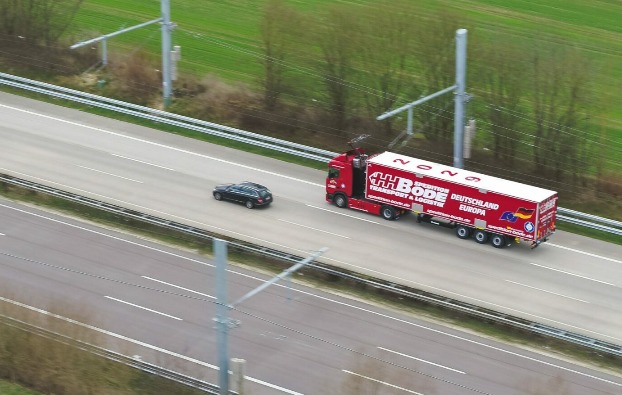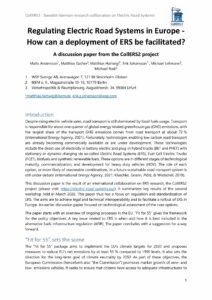Electric road systems (ERS) are infrastructures – such as overhead lines or inductive charging technologies – that enable electric vehicles to be supplied with energy while driving. These systems have the potential to help reduce greenhouse gas emissions from transportation, particularly in heavy freight transport. As part of the CollERS2 project, the Institute for Climate Protection, Energy and Mobility (IKEM) has now published a working paper outlining the development and implementation of a transnational ERS network in Europe.
“ERS are currently being successfully tested in various EU countries. Despite these national projects and the potential of the technology for cross-border commercial traffic, the European Union does not yet have an expansion strategy for ERS. This situation hinders swift progress in the further development and widespread deployment of ERS infrastructure, specifically, as well as the decarbonisation of road freight transport in general,” explains Matthias Hartwig, Head of the Mobility Department at IKEM, outlining the starting point and motivation for the working paper.
An analysis of traffic data of European road freight transport forms the basis of the working paper. The participating researchers identified corridors, such as from Deggendorf (Germany) to Wels (Austria) and from Eindhoven (Netherlands) to Kreuz Moers (Germany), characterised by high levels of truck traffic and therefore particularly suitable for ERS expansion. This resulted in a proposal for a European ERS target network that can serve as a basis for a coordinated planning and implementation process.
Hartwig believes the ball is in the European Union’s court: “Establishing ERS infrastructure along European highways can be achieved in two ways. Either the European Union pursues an approach with European-wide control and standardization, or it takes on a primarily coordinative role and leaves it to member states to promote ERS implementation through national and bilateral flagship projects. Our study also demonstrates that the existing national ERS route plans have significant overlaps with the European TEN-T transport corridors. This should encourage the European Union to take up national initiatives and play a more active role in ERS.”
The working paper puts forward concrete proposals for how ERS can be regulated at the European level. Hartwig explains: “With only minor adjustments to the already comprehensive European regulation on infrastructure for alternative fuels and the trans-European transport networks, much can be achieved. The draft for a new regulation on alternative fuels infrastructure at least defines ERS and promotes its standardization. Our working paper outlines the next steps from here.”







